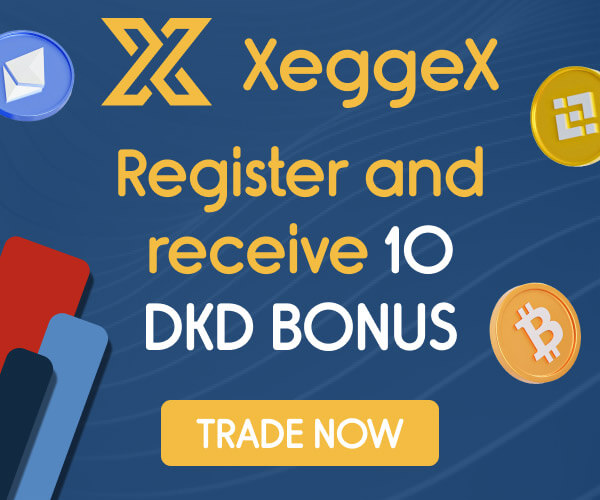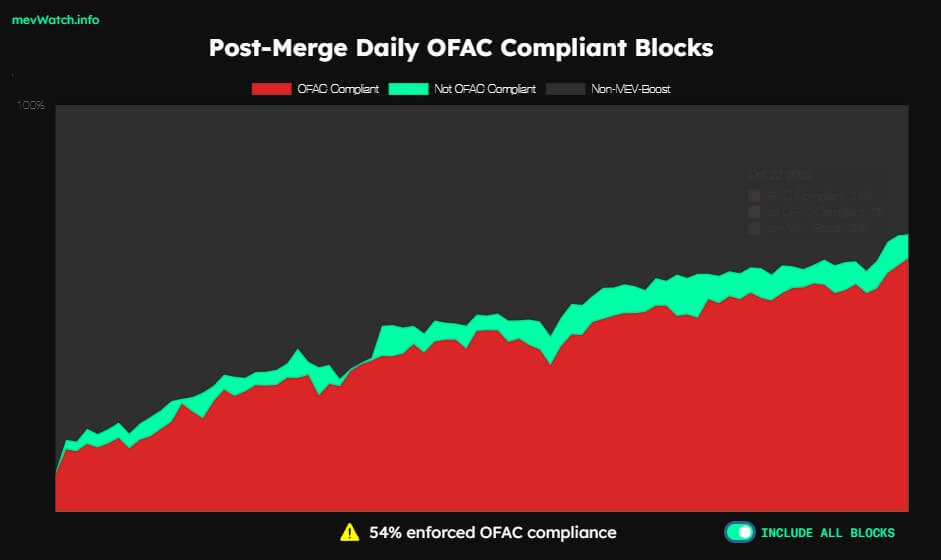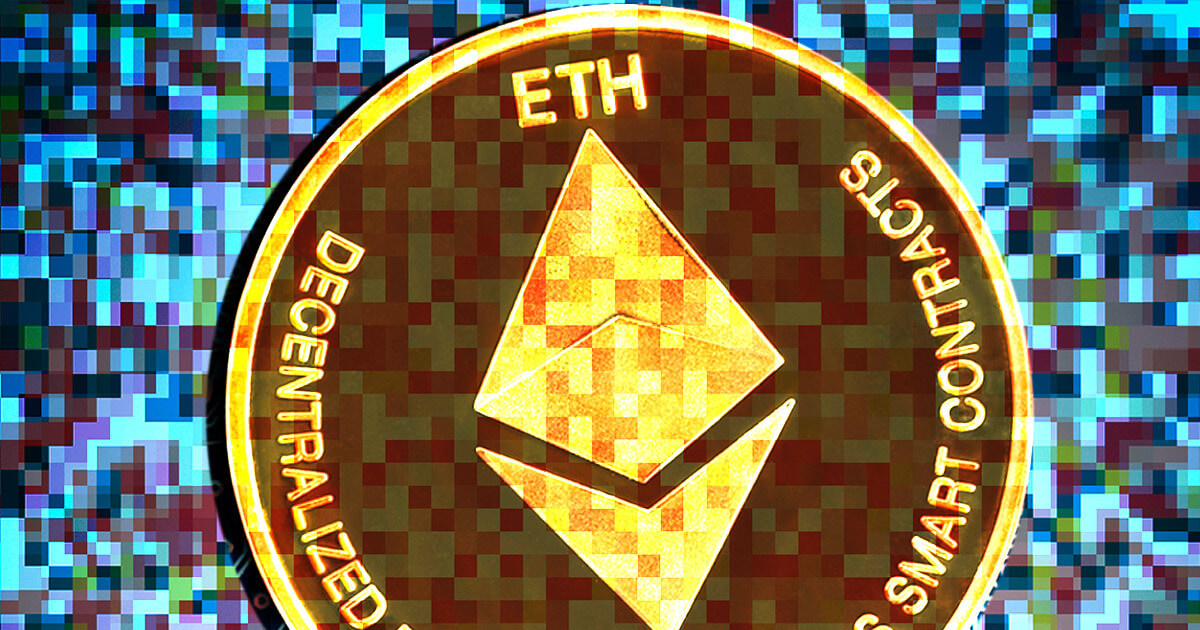
Following OFAC sanctions against Ethereum addresses associated with Tornado Cash and other global entities, many were concerned about the precedent set by the ban. Ethereum founder Vitalik Buterin has called for a reduction in validators if censorship occurs at the protocol layer.
However, in the last month, the use of MEV relays such as Flashbot has increased the number of OFAC-compliant blocks generated on Ethereum.
Swan Bitcoin Chief Editor Tomer Strolight asked on Twitter, “Why is no one talking about this?” The answer may lie in the complexity of the problem. Still, a valid point is made that censorship via relayed blocks should not be ignored.
Why is no one talking about this? pic.twitter.com/Nlng6kgHxr
— Tomer Strolight (@TomerStrolight) October 26, 2022
Validators use MEV boost middleware tools such as: flash bot to increase your income. The Flashbots GitHub repository describes a prominent use case.
“MEV-Boost allows validators to access blocks from a builder’s marketplace. Builders generate blocks that contain transaction order flow and fees for blocks that propose validators. Separating from block builders will help Ethereum become more competitive, decentralized and censorship resistant.”
The website mevwatch.info provides insight into which blocks have been censored by the MEV boost relay. In the intro of the website,
“Some MEV-Boost relays are regulated under OFAC and censor certain transactions. Use this tool to observe their impact on the Ethereum block.”
In the last 30 days, 89% of relayed blocks achieved OFAC compliance. During the same period, 46% of all blocks generated on the Ethereum blockchain also censored transactions containing OFAC-sanctioned addresses.

However, the number of blocks enforcing OFAC sanctions is increasing daily. As of October 26, 63% of all Ethereum blocks were OFAC compliant. Considering only relayed blocks, the percentage increases to 92%. As the chart below highlights, this increase shows no signs of slowing down.

Buterin recently commented on the issue of censorship on the Ethereum network, stating that “actively curating validators are not the goal at all.” When MEV-boost is used to optimize block returns, it is the relay, not the validator, that curates the block.
Both nuances may be necessary, but as of October 26, over 60% of all Ethereum blocks have been censored. The method may be good, but the result is clear. It may no longer be possible to consider Ethereum’s censorship resistance.
Not having an active curating validator is not a goal at all. Rather, it is a question of what level of response is appropriate for what level of violation.
—vitalik.eth (@VitalikButerin) October 17, 2022
The FAQ on the mevboost.info website states that validate can “consider not including relays in mev-boost configurations that censor transactions”. Lists some of his alternative MEV boost services that do not censor information in line with OFAC sanctions.Additionally the relay is also listed in ethstaker Github.
“Flashbots, BloXroute Max Profit, BloXroute Ethical, BloXroute Regulated, BlockNative, Manifold, Eden. Of the seven major relays available, only three have not been censored per OFAC compliance requirements.”
For those who reasonably argue that OFAC-sanctioned addresses are there to protect the ecosystem, the issue is not limited to current sanctions lists.
If the US decides that projects, protocols, tokens, and even NFT projects on Ethereum no longer serve its interests and add the associated addresses to the OFAC sanctions list, how can that project survive in the current situation? You will have a hard time.
63% of the blocks generated on Oct. 26 excluded OFAC-sanctioned blocks. Almost two-thirds of Ethereum validators will stop producing blocks containing DeFi or DEX transactions if OFAC decides that he will authorize the DeFi protocol or DEX due to new legislation in the United States. There is no indication that this is on the card, but the fact that it is possible is dangerous for crypto.
The cryptocurrency concept was built on a backbone of permissionless interactions. However, Ethereum has now entrusted most of its network to a US entity in the form of his OFAC. As Strolight speculated on Twitter, the latest blockchain data shows his 70/100 of all blocks are OFAC compliant, which could be “enough to take over the entire network.” I have.
70% contains non-MEV Boost blocks. I think that’s enough to take over the entire network. pic.twitter.com/rp4UPnNJSZ
— Tomer Strolight (@TomerStrolight) October 26, 2022
Labrys, the company behind mevwatch.info, which is not against the regulations, said:
“It is important to ensure that Ethereum remains credibly neutral on the global stage. must be considered.”



